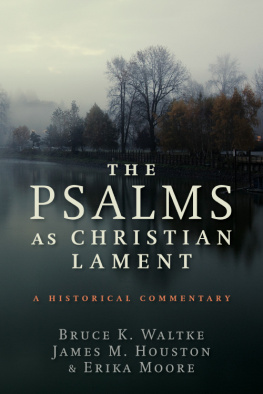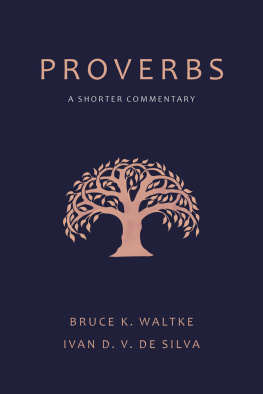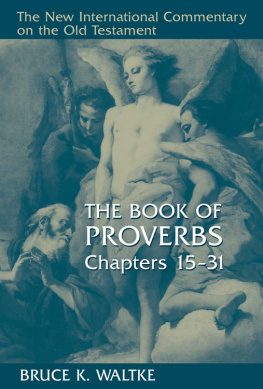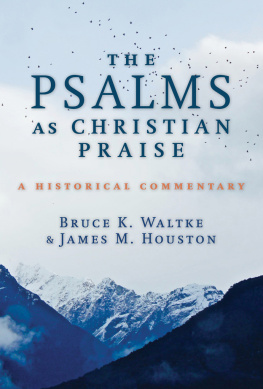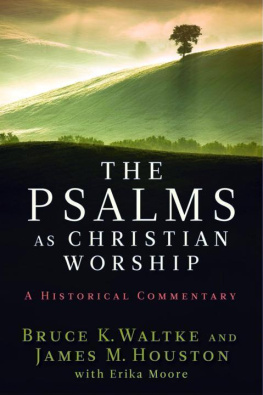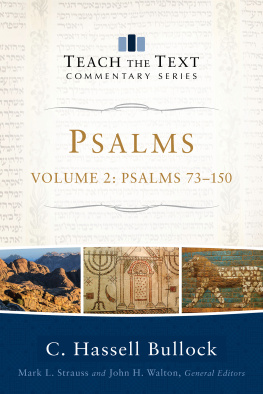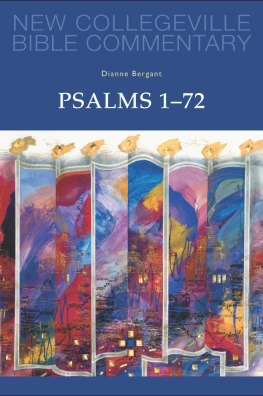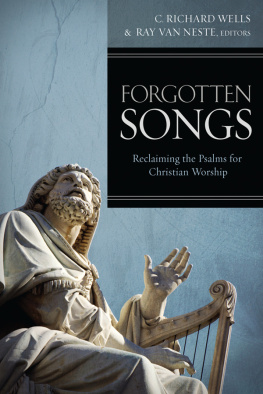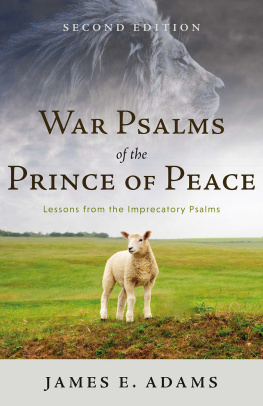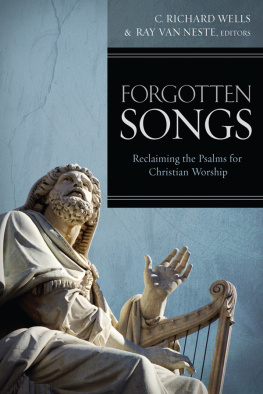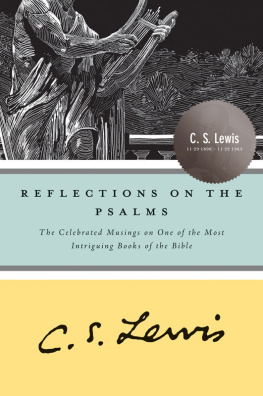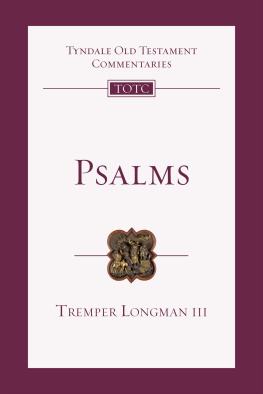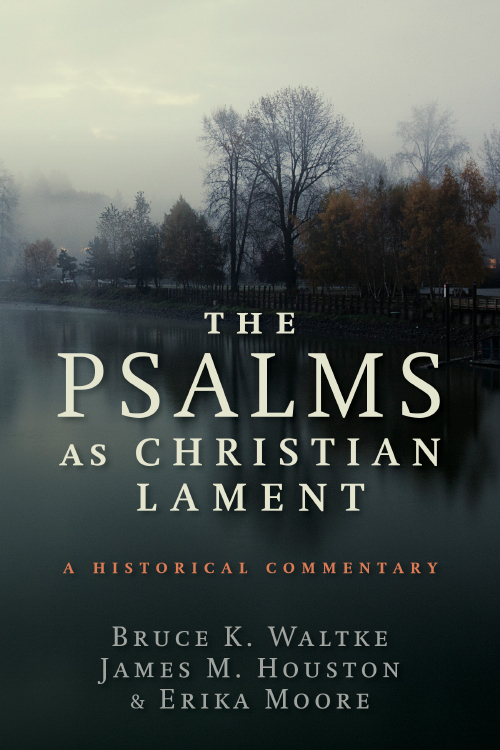Part II. Voice of the Psalmist: Translation
A Royal Petition for Vindication by Salvation from Death
Biblical lament is too mysterious to equate cheaply with psychological complaint. Nor can it be comprehended exhaustively for a seminary textbook. It certainly reflects upon the human condition, but it also reflects upon the character of God. It is a vital aspect, then, of theological anthropology, itself an increasingly central concern for Christianity in the twenty-first century. Our study of lament psalms will hopefully provide a basis for a theology of lament.
Our motive is not that of previous scholarship that identified one genre or category of the Psalter as lament psalms, in contrast to other genres, such as praise. together with Psalms 5 to 7 as a cluster, together with special pleas for Psalms 44 and 49.
As we shall see, the early Church Fathers did not take their penitential character with the same literal emphasis as the medieval culture was to do later. Our sample, then, is in no sense comprehensive, but more contextual of a basic human posture of our finitude, of our sinful nature, of our need of redemption, of our trust and communion with God, all in the light of Gods purpose for humanity to be created and destined in the imago dei.
As for finitude, the problem of being persecuted for righteousness sake was more vexing for the psalmist in the old dispensation than for Christians in the new dispensation. The old dispensation promised blessings to those who In short, as a result of Christs forewarning, one cannot speak of the psalms as Christian complaint.
To be sure, Christians, like the psalmists, mourn their sufferings, and they hunger and thirst for righteousness (cf. Matt. 5:3-11). The Lord Jesus with the psalmist said my soul is troubled (John 12:27; Ps. 6:2-3[3-4]), and into your hands I commit my spirit (Luke 23:46; Ps. 31:5[6]). Like the lamenting psalmist, he was hated without reason (John 15:25; Ps. 35:19) and a close friend lifted his heel against [him] (John 13:18; Ps. 41:9[10]). Paul also identified with the psalmist when he wrote: For your sake we face death all day long; we are considered as sheep to be slaughtered (Rom. 8:36; Ps. 44:22[23]). But, unlike the psalmist, Christians rejoice in their suffering, and this for two reasons. First, Christians, more so than the psalmists, know that undeserved sufferings produce virtues (Rom. 5:3-5; Jas. 1:2-3; 1 Pet. 1:7). And second, because Jesus Christ has brought life and immortality to light through his death for sin, burial, and authenticated resurrection (2 Tim. 1:10; 1 Cor. 15:3-8), they know better than the psalmist that great is the reward in heaven of those who are persecuted because of righteousness and faith in Jesus Christ (Matt. 5:10-12; 1 Pet. 4:13). Francis Bacon said well: Prosperity is the blessing of the In short, one cannot speak of the psalms as Christian joy in suffering.
Being poor and being in lament are linked in the Psalter: in seeking righteousness in the law court as a plaintiff; in crying out for help in danger, oppression, and the threat of death; in need of health and cure in the presence of sickness and disease; and, in the truly penitential psalms, in seeking forgiveness, redemption, and restoration of communion with God.
Mysteriously, Jesus Christ himself, as the God-Man, fed his inner life in communion with his Father, at the significant stages of his life and death, on the Hebrew Psalms. He probably first learned them at his mothers knee as a small child (cf. Ps. 22:9-10[10-11]; 2 Tim. 1:5; 3:14-15). When he was baptized in solidarity with all humanity, the recitation of a psalm gave clarity to his earthly mission. In his nakedness and cruel suffering on the cross, it was with a psalm that he died. As the epistle to the Hebrews comments, in the days of his flesh, Jesus offered up prayers and supplications with loud cries and tears, to him who was able to save him from death, and he was heard because of his reverence (Heb. 5:7). Likewise in the persecution and suffering of his followers, Paul and Silas, who chanted psalms at midnight while they were imprisoned (Acts 16:25).
As the Fathers of the fourth century struggled to sustain both the humanity and the deity of Christ, within the Greek culture of the immutability of the divine, the Nicene Christianity that was shaped through these struggles inserted a critical article: for us... he was made man. This we may paraphrase as who for the sake of human persons was made a human person. The incarnation is for a specifiable objective.purpose. For to have a genuine human existence as God intended us to enjoy is to exercise lament before him. This is expressive of his sovereign grace, of our trust in his good purposes, and of our final destiny, to be transformed to the image of his Son.
Our historical commentaries are not comprehensive; rather, they are selected vignettes showing how lament was exercised for particular concerns and personal issues at differing periods of church history. Each of the early Fathers has his own style of pastoral theology that expresses his own personhood. Only from the time of Bede and Alcuin do the numerical seven Penitential psalms begin to have social force, as the penitential culture from the thirteenth century until the Reformation dominated the use of the Psalter.
In the England of Henry VIII, the penitential psalms might subtly have been used as a political protest against his marital affairs. Lament psalms were also appropriated in the ways rivalry operated even among the reformers.

